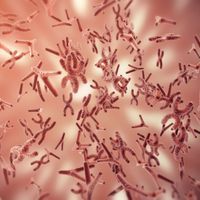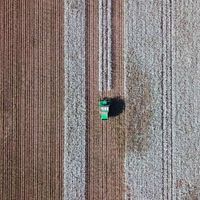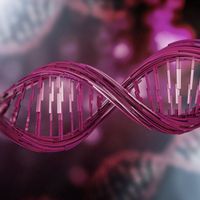Login
Subscribegenetics & genomics

Sanger Institute Accused of Misusing African DNA Samples
Kerry Grens | Oct 15, 2019 | 2 min read
Whistleblowers allege the institute intended to commercialize a research tool based on the material, a violation of agreements with African scientists who collected the sequences.

Koala Immune Response to Genome-Inserting Retroviruses Identified
Emily Makowski | Oct 11, 2019 | 1 min read
Small RNAs called piRNAs provide a first line of defense against the viruses.

Unbalanced Chromosomal Inheritance More Common than Thought
Jef Akst | Oct 11, 2019 | 2 min read
A genomic analysis from 23andMe suggests that people inherit two copies of a chromosome from only one parent nearly twice as often as researchers had realized.

The Long Road to Edible Cottonseed
Shawna Williams | Oct 11, 2019 | 5 min read
The FDA recently cleared the way for marketing of the genetically modified product. Texas A&M’s Keerti Rathore speaks with The Scientist about why and how it was developed.

Genome-Edited Hornless Cows’ Offspring Are Healthy: Study
Kerry Grens | Oct 9, 2019 | 2 min read
All six calves inherited the gene for preventing horn growth, but four also got a piece of the plasmid used to introduce the sequence to their dad—complicating regulatory approval.

New Tools in the Works to Probe Adult Human Neurogenesis
Ashley Yeager | Oct 7, 2019 | 6 min read
Conflicting results on the existence of new neurons in adults have researchers designing new ways to identify and count neuronal progenitors—and finally get to the bottom of neurogenesis.

US Government Considers Collecting Detained Immigrants’ DNA
Ashley Yeager | Oct 3, 2019 | 2 min read
The Department of Justice plans to require cheek swabs at the border, with the data then entered in a national criminal database.

What Your DNA Can’t Tell You
Diana Kwon | Oct 2, 2019 | 5 min read
Companies are selling reports about a wide range of physical, cognitive, and behavioral traits to consumers based on their genomic data, but such tests have a number of limitations.

Joachim Messing, Developer of Shotgun Sequencing, Dies
Shawna Williams | Oct 1, 2019 | 2 min read
In addition to his work on widely-used techniques, the researcher was known for engineering crop plants.

Human Reference Genome Doesn’t Capture Full Genetic Diversity
Katarina Zimmer | Oct 1, 2019 | 4 min read
A new analysis of 1,000 Swedes uncovers a chromosome’s worth of novel DNA sequences—much of them ancient—underscoring the need for a more diverse reference genome.

Blood-Based Epigenetic Screen Tests for Diabetes Complications
Katarina Zimmer | Oct 1, 2019 | 4 min read
Researchers could accurately detect life-threatening vascular complications in type 2 diabetes patients by analyzing hydroxymethylated cytosines in freely circulating DNA.

The Narluga: New Insights from Old Bones
Ashley Yeager | Oct 1, 2019 | 4 min read
DNA analysis of a bizarre, 30-year-old whale skull serves as a reminder of the secrets that museum specimens keep about the natural world.

Opinion: Why Mammalian Brains are Geared Toward Kindness
Patricia Churchland | Oct 1, 2019 | 3 min read
Neuroscience is starting to unravel the evolutionary underpinnings of mammals’ selflessness.

Error in Study Linking HIV Resistance Gene to Increased Mortality
Emily Makowski | Sep 30, 2019 | 2 min read
The authors have requested a retraction of a paper that found people with the CCR5 Δ32 variant are more likely to die sooner.

Replication Refutes Study Linking Neuroimaging to Genetics
Emma Yasinski | Sep 30, 2019 | 3 min read
The original experiment found brain activity as measured by fMRI was tied to particular genetic variants.

Microbes Shape Circadian Rhythms in the Mouse Gut
Kerry Grens | Sep 27, 2019 | 2 min read
The diurnal cycles of the microbiome alter the activity of a protein produced by the host, and in turn guide histone acetylation, gene expression, and metabolic activity.

Arsenic-Resistant Nematodes Found in Mono Lake
Abby Olena, PhD | Sep 26, 2019 | 3 min read
Researchers recovered eight species from the salty, alkaline environment—increasing the known biodiversity of animals in the California lake five-fold.

RNA-DNA Chimeras Might Have Supported the Origin of Life on Earth
Jef Akst | Sep 17, 2019 | 2 min read
A new study finds mixtures of nucleotide types, rather than pure systems, are more likely to yield the building blocks of life.

GM Mosquito Progeny Not Dying in Brazil: Study
Kerry Grens | Sep 17, 2019 | 2 min read
The biotech Oxitec had released the genetically engineered insects with the hope that they would breed with wild populations and produce offspring that die young. But that’s not always happening.
